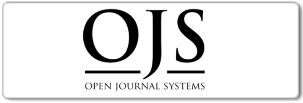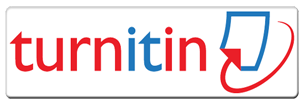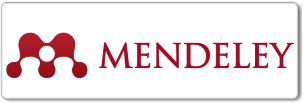Overview of Halal Labeling of Herbal Medicine In Pharmacies
Keywords:
halal critical point, halal label, herbal medicineAbstract
Medicine is defined as a material or mixture of materials used as a health effort. Medicines and herbal medicines can be said to be halal if they meet the critical points of halalness, including from the process of selecting materials to becoming finished drug products that will be used by patients, not using and coming into contact/contaminated with haram substances and getting a halal label issued by BPJPH (Halal Product Guarantee Agency). Indonesia is a country with a Muslim majority that needs consumer protection for drug products circulating in the market so that products with a halal label are needed. The aim is to find out the availability of halal herbal medicines at Pharmacy X. This research method is descriptive observational by collecting data on all herbal medicines by recording the name of the medicine and checking the halal label on the packaging. Data processing was carried out by creating a table and calculating the percentage of the number of herbal medicines labeled halal and non-halal which were available at Pharmacy X. The results of the study obtained 136 halal-labeled herbal medicines (91.89%) and 12 non-halal-labeled herbal medicines (8.11%) out of 148 herbal medicine items available at Pharmacy X. Herbal medicines can be classified as halal if the composition listed on the packaging does not contain any haram elements and has been registered with the Food and Drug Supervisory Agency (BPOM).
References
Faridah, H. D. (2019). Sertifikasi Halal di Indonesia: Sejarah, Perkembangan, dan Implementasi. Journal of Halal Product and Research, 2(2), 68–78.
Gonibala, A. P., Mappa, Moh. R., & Kuna, Moh. R. (2022). Education Of Natural Material Processing As Alternative To Traditional Treatment In Muntoi Village, Bolaang Mongondow. Community Engagement & Emergence Journal, 3(3), 228–234.
Hidayat, A. S., & Siradj, M. (2015). Legal Arguments of Halal Product Guarantee. Bimas Islam, 8(No. 01), 31–66.
Iqbal, M., Ramdini, D. A., Triyandi, R., & Suharmanto. (2022). Preferensi Penggunaan Obat Tradisional dan Obat Modern pada Masyarakat Desa Umbul Natar Lampung Selatan Preference of Traditional and Modern Medicine Use in Umbul Natar Village Population , South of Lampung. JK Unila, 6(2), 94–104.
Matodihardjo, S., Ariessanti, I. A., & Meilani, A. D. (2022). Analisis Label Halal Pada Nama Dagang Obat Tablet Melalui Pengamatan Pada Kemasan Sekunder Terkait Jaminan Produk Halal di RSI Sultan Agung Semarang. Indonesian Journal of Medical and Pharmaceutical Science, 1(2), 55–62.
Portal Satu Data Tingkat Kota Semarang. (2024). Jumlah Penduduk Agama Islam. https://data.semarangkota.go.id/
Purwanto, H. (2018). Problematika Penetapan Hukum pada Poin Kritis Bahan Olahan dan Laboratorium Produk Halal. Syariati : Jurnal Studi Al-Qur’an Dan Hukum, 4(02), 191–202.
Rahmadani, G. (2015). Halal dan Haram dalam Islam. Jurnal Ilmiah Penegakan Hukum, 2(1), 20–26.
Rahmawati, S., & Fathurohman Sw, O. (2024). Kajian Produk Halal Farmasi Dalam Perspektif Islam Dan Kemuhammadiyaan. Agustus, 2(3).
Downloads
Published
How to Cite
Issue
Section
License
Copyright (c) 2025 Mar'atu Sulistyowati, Farroh Bintang Sabiti, Naniek Widyaningrum

This work is licensed under a Creative Commons Attribution-ShareAlike 4.0 International License.
This work is licensed under the Creative Commons Attribution-ShareAlike 4.0 International License.
You are free to:
- Share — copy and redistribute the material in any medium or format for any purpose, even commercial purposes.
- Adaptation — mixing, changing, and developing materials for any purpose, even commercial ones.
Under the following terms:
- Attribution — You must give appropriate credit , provide a link to the license, and indicate if changes were made . You may do so in any reasonable manner, but not in any way that suggests the licensor endorses you or your use.
- ShareAlike — If you remix, transform, or build upon the material, you must distribute your contributions under the same license as the original.
- No additional restrictions — You may not apply legal terms or technological measures that legally restrict others from doing anything the license permits.








